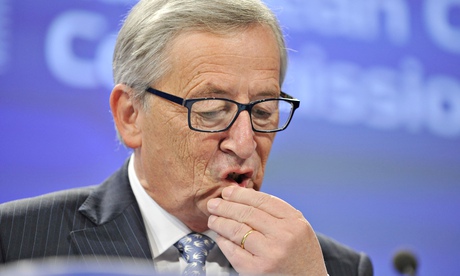It’s been one year since the European Parliament inaugurated its eighth legislature on 1 July 2014. Whenever the question of the lack of democratic legitimacy is mentioned—a problem almost unanimously acknowledged in the Union—everybody turns to the European Parliament as the entity called to be the solution.
Prior to the 2014 elections, the European electorate was told that, this time, elections would make a difference. This assertion was made on the premise that, for the first time, the “pan-European” political parties were fielding candidates for the presidency of the Commission. Though indirect, some kind of link was made between the electorate and the top executive of the Union’s operational arm. Efforts by the UK Prime Minister to appoint somebody other than the EPP candidate, who got the majority of votes EU-wide, were unsuccessful and Jean-Claude Juncker indeed became Commission President, confirmed by a large majority in the European Parliament including the Socialist and Liberals too.
The Greek crisis has frequently landed Mr. Juncker on the top headlines, making him better known to the citizens, but not necessarily more popular.
Has this made a difference? Has Mr. Juncker evolved into a figure that Europeans recognise as representing their preferences? That’s difficult to say. The Eurobarometer should try to dig out a clear answer. Certainly, the Greek crisis has frequently landed Mr. Juncker on the top headlines, making him better known to the citizens, but not necessarily more popular.
We may even be suffering a kind of “asymmetric political shock”. At the time of the euro’s inception, many economists warned of the risk of economic asymmetric shocks—this is when very different economic situations occur simultaneously in different countries—and the difficulties that would arise from having given up on independent monetary, interest and exchange rate policies. That prophecy has, unfortunately, materialised.
Now we may be facing a similar phenomenon: political preferences among countries seem to increasingly diverge and the national political systems cannot respond to their national electorates, as they have given up part of their political sovereignty. The paradox produced by the Greek referendum (no point in discussing here whether it was a good idea in the first place) may be seen under this light.
Most likely, the majority of Greeks today know who Mr. Juncker is. Probably, most British, Poles, Spaniards and many other Europeans still do not. The sudden and brutal realisation of how much the Union’s level of decision-making impacts real life has occurred in a single country. The only positive effect of the crisis in Greece is that its citizens have, in a way, jumped ahead in terms of European awareness (although not in the way one would have hoped). Paradoxically, again, this has happened at the very moment when they were, and still are, at risk of abandoning the core of the Union.
Most likely, the majority of Greeks today know who Mr. Juncker is. Probably, most British, Poles, Spaniards and many other Europeans still do not.
Somehow, similar problems may occur in the future when, in a given country, a broadly shared political position exists and differs from the European mainstream. It can be on any issue perceived as fundamental by the population—from the survival of the welfare state to sensitive questions on basic rights or foreign policy perceptions. We are already seeing a number of those issues taking shape.
In a way, discrepancy over those issues may distance any given country from the Union even more than the question of austerity in Greece, as the latter was linked to specific contractual obligations freely entered into by Greece on an ad hoc basis, while the former is the subject of “irrevocably” transferred sovereignty. Seen in this light, EU membership narrows the political choices of a country´s citizens. The crucial question here is whether or not citizens in each country will consider this concession to be worth it.
EU membership narrows the political choices of a country´s citizens.
Now, back to the original question: can the European Parliament be the venue where these political asymmetries are ironed out? We will see. It will be a difficult exercise, for as much as MEPs may be bound by their pan-European political affiliations, they ultimately are bound to a further extent by their national electorates. Whether Mr. Juncker will manage to represent the pan-European electorate and articulate an inclusive common interest remains to be seen, but for that he would need a lot of exposure to many issues that go beyond the concerns or misfortunes of only a few EU members.
This post is also available in: Spanish



